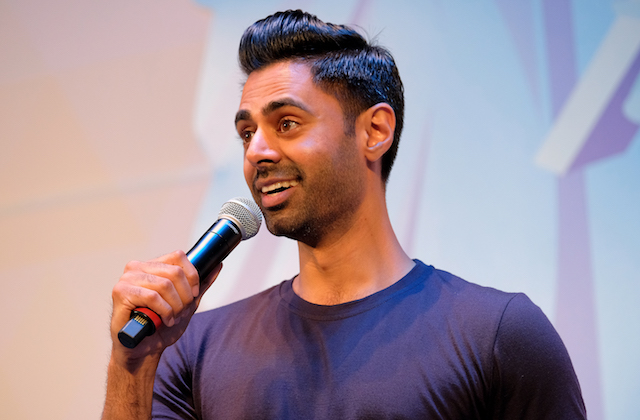Time magazine recognizes several entertainers, athletes and other public figures of color as Next Generation Leaders in its new cover story package, which debuted online yesterday (October 11).
This year’s version of the annual roundup, which highlights people and groups shaping their industries, includes 22 profiles and accompanying videos. Read the following passages before visiting Time.com for the entire list:
Hasan Minhaj, comedian and host of "Patriot Act with Hasan Minhaj":
rnt
There haven’t been many Indian-American comedians to reach Minhaj’s level of fame—and even fewer who openly talk about issues like Islamophobia in their work. He distinctly remembers the moment 2008 when a woman at a John McCain rally accused Barack Obama of being “an Arab,” to which the Senator replied, “No, he’s a good man.”
t
“All of my friends were like, ‘That is so honorable.’ But for me, as a Muslim American, I was like, ‘What if an Arab American had been watching this?’ The real answer should have been, ‘If he’s an Arab, so what?’” Minhaj says. “From then on, I’m just like, I’m not apologizing for who I am. I’m fighting for basic human respect.”
Adwoa Aboah, supermodel:
rnt
With her shaved head, freckles and jeweled tooth, Adwoa Aboah doesn’t look like most of the supermodels who came before her. And yet since her November debut on the cover of British Vogue (the first issue under the publication’s first Black editor, Edward Enninful), Aboah, 25, has assembled a list of accomplishments that places her firmly in their ranks. She has fronted campaigns for major brands, such as Chanel, Burberry and Revlon. She has won awards, including the British Fashion Council’s highly coveted Model of the Year (a designation previously given to Kate Moss, among others). And in May, she appeared at the Met Gala alongside icons like Donatella Versace and Cindy Crawford. Growing up in London, Aboah, whose father is Ghanaian, says she thought the fashion industry “had no room” for girls like her. Now she’s redefining what’s in vogue. “I put so many limitations on myself,” she says. “Now I set absolutely no boundaries.”
Amandla Stenberg, actor and star of "The Hate U Give":
rnt
“When social media first started popping up, it was really exciting because for the first time, we weren’t dependent on White institutions to afford us platforms of representation,” she says. “A few years later, you see the effects in Hollywood, in the diversity that’s finally being portrayed onscreen.”
t
Which creates room for even more voices like Stenberg’s. “I’m still figuring out what box I would like to be defined by,” she says. Then she reconsiders. “But hopefully, I’ll never be defined by any box.”
Sheku Kanneh-Mason, cellist and performer at the Royal Wedding:
rnt
“If you’re a young Black child and you go to a concert, you would very rarely see someone on stage who looks like you,” he says, speaking to Time at the Royal Academy of Music’s Duke Hall. Sporting Nikes and an Afro, he stands out in the Edwardian theater adorned with portraits of White, cross-legged luminaries. “It’s difficult to see yourself doing that. And that was the case with lots of different arts and sports at one point, but now we see lots of diversity in that, and I think the same is possible with classical music.”
Kylian Mbappé, star of the World Cup-winning France men’s national team:
rnt
Still, on the streets of Bondy, the Paris banlieue where Mbappé was born and raised by his Cameroonian father Wilfried and Algerian mother Fayza Lamari, the World Cup victory seems more personal than patriotic. After decades of grievances, and with an unemployment rate over 22 percent, Bondy’s celebrations in July were more complicated than French officials had implied; the area was among those that erupted in violent protests in 2005, when Mbappé was just six. Bondy’s joy is for the town’s local boy made good—Mbappé, who was just 14 when he left for Monaco in 2013; the Mbappés now live together in central Paris.
t
Five years on, Mbappé is reluctant to dwell on life in the banlieues, aware that his new wealth is a sharp contrast from his childhood. He donated his World Cup earnings of about $500,000 to a charity teaching sports to sick and disabled children—a piddling sum for him, he admits, that “does not change my life, but changes theirs.” But having left hardship behind, Mbappé still credits his Bondy years for his career. Many children there play soccer almost incessantly from toddlerhood; his father was a coach at Bondy’s municipal sports club. “Bondy is a city that breathes football,” he says.
Stenberg, Mbappé and Korean boy band BTS appear in Time’s various editions of the cover.
